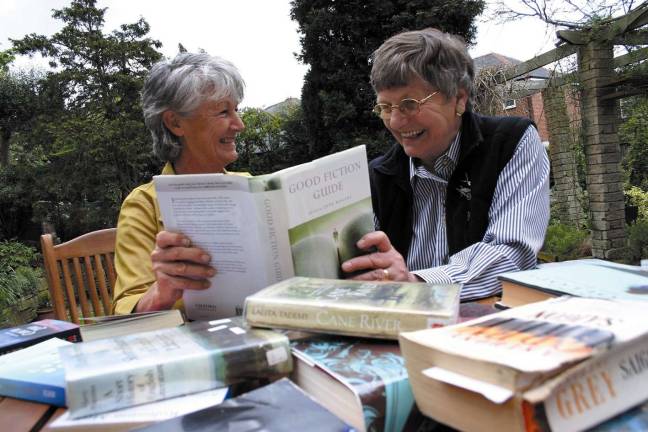Dementia on the downslide, especially among the educated

In a hopeful sign for the health of the nation’s brains, the percentage of American senior citizens with dementia is dropping, a new study finds.
The downward trend has emerged despite something else the study shows: a rising tide of three factors thought to raise dementia risk by interfering with brain blood flow, namely diabetes, high blood pressure, and obesity.
Those with the most years of education had the lowest chances of developing dementia, according to the findings, which were published in JAMA Internal Medicine. This may help explain the larger trend, because today’s seniors are more likely to have at least a high school diploma than those in the same age range a decade ago.
With the largest generation in American history now entering the prime years for dementia onset, the new results add to a growing number of recent studies in the United States and other countries that suggest a downward trend in dementia prevalence.
“Our results, based on in-depth interviews with seniors and their caregivers, add to a growing body of evidence that this decline in dementia risk is a real phenomenon, and that the expected future growth in the burden of dementia may not be as extensive as once thought,” says lead author Kenneth Langa, a professor at the University of Michigan Medical School. “But it does nothing to lessen the impact that each case has on patients and caregivers. This is still going to be a top priority issue for families, and for health policy, now and in the coming decades.”
David R. Weir, Ph.D., senior author of the paper, said the investments the country made in education after World War II are paying off now in better brain health among older adults.
“More Baby Boomers have completed some higher education than any previous generation, but the trend toward more education appears to be leveling off in the U.S.," he said. "And there are clear disparities in educational attainment according to wealth and ethnicity. These differences in education and wealth may actually be creating disparities in brain health and, by extension, the likelihood of being able to work and be independent in our older years.”
Years of formal education was the only marker tracked among the study participants. But, said Langa, it is likely that the other ways people challenge and use their brains throughout life — reading, social interactions, what occupation they have, and how long they work — may also affect dementia risk in later life.
All of these pursuits can help build up a person’s “cognitive reserve” of brain pathways that can survive the assault of the physical factors that lead to dementia.
Growing evidence has shown that dementia in older adults is usually due to multiple causes, including Alzheimer’s disease, which is characterized by a buildup of abnormal proteins in the brain, as well as vascular dementia, which results from brain tissue not receiving enough blood due to blockages and leaks in the brain’s blood vessels.
But even if the slide in dementia incidence continues, the Baby Boom generation’s sheer size will mean challenges for those who fund care or provide it.
"The number of older adults is growing so rapidly that the overall burden of dementia is still going up," said Weir.
Source: University of Michigan Health System: uofmhealth.org